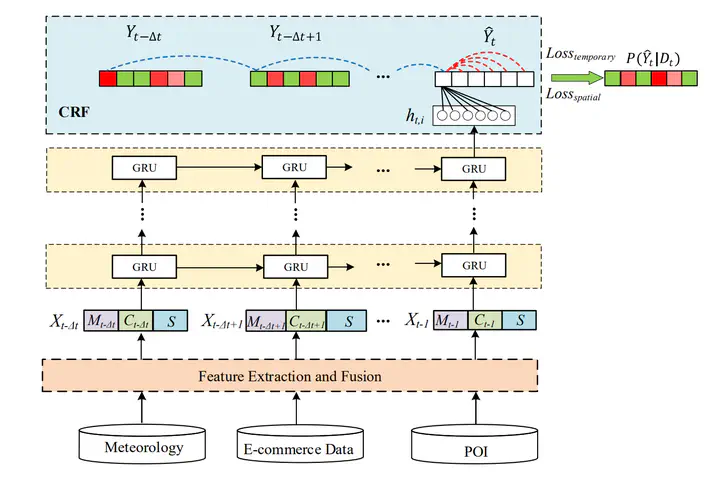
Abstract
Forecasting the fire risk is of great importance to fire prevention deployments in a city, which can reduce loss even deaths caused by fires. However, it is very challenging because fires are influenced by many complex factors, including spatial correlations, temporal dependencies, even the mixture of these two and external factors. Firstly, the fire risk of a region is influenced by temporal effect of internal factors (e.g., the historical fire risk records) and temporal effect of external factors (e.g., weather). Secondly, a region’s fire risk is not only influenced by its inherent geospatial attributes (e.g., POIs) but also dependent on other regions in spatial. To address these challenges, we propose a machine learning approach to forecast the fire risk, entitled NeuroFire. NeuroFire can represent internal and external temporal effect then combine the temporal representation and spatial dependencies by a spatial-temporal loss function. Experimental evaluations on real-world datasets show that our NeuroFire outperforms 9 baselines, demonstrating the performance of our approach by several visualizations. Moreover, we implement a citywide fire forecasting system named CityGuard to display the analysis and forecasting results, which can assist the fire rescue department in deploying fire prevention.